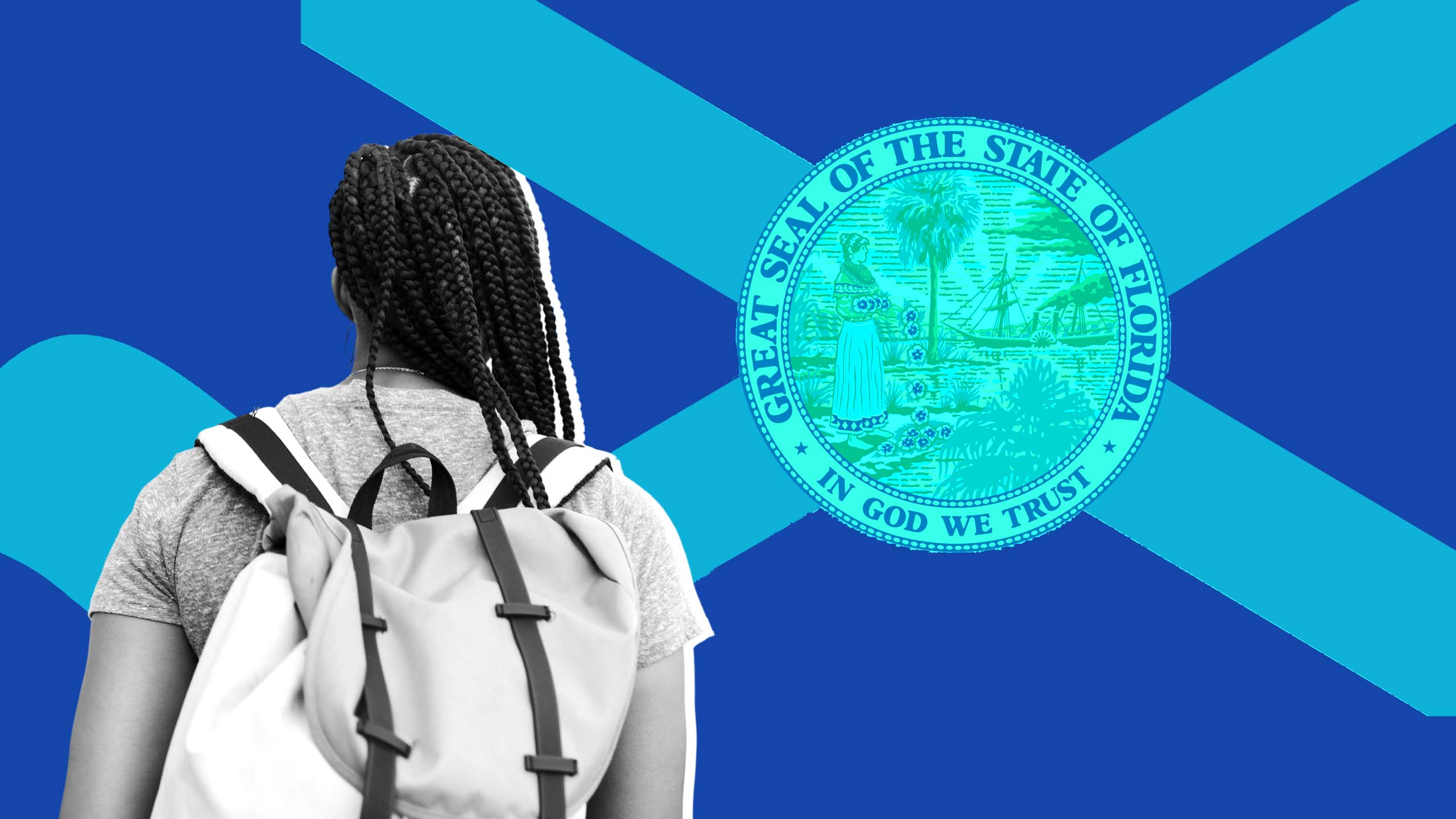Four months after it was signed into law, the effects of Florida’s “Don’t Say Gay” bill continue to ripple outward. Most recently, a Tallahassee school district’s new guidelines for LGBTQ2S+ inclusion are being criticized for potentially requiring teachers and staff members to “out” trans students.
In June, the Leon County School Board in Tallahassee unanimously approved the “LGBTQ Inclusive School Guide,” which is intended to clarify its guidelines on queer and trans inclusion in the wake of the “Parental Rights in Education” law, which was signed by Gov. Ron DeSantis in March. The 15-page document outlines how restrictions on the teaching of LGBTQ2S+ topics in the classroom affects teachers and administrators assisting queer and trans students.
The guidelines do state that information about students’ LGBTQ2S+ identities shouldn’t be shared without permission. However, new amendments to the district-wide policies also specify that parents of other students in the class must be notified if a student who is “open about their gender identity” is in a physical education class that involves sharing a locker room.
In such a case, parents would receive a note that reads: “A student who is open about their gender identity may be in your child’s Physical Education class or extra/cocurricular activity. If you are requesting accommodation for your student, please contact school administration to discuss reasonable accommodation options.”
Per the guidelines, the only way for trans or non-binary students to not get outed under the policy would be if the student agreed to use individual restroom facilities separate from all other students.
Initial reports stated that parents would receive a similar notification if their student was attending an overnight school trip with a student who is “open about their gender identity,” but the local newspaper Tallahassee Democrat confirmed that this is no longer a part of the guidelines.
Critics expressed concerns about the policy’s implications for LGBTQ2S+ students, particularly for those who live in unsupportive households, and for whom the policy could cause tangible harm. “Sending out a parent notification could be seen as placing a target on a student’s back,” Lauren Kelly-Manders, who sits on Tallahassee’s LGBTQ+ Advisory Council, told the Democrat. “I have concerns and trouble envisioning that type of notice in practice.”
Brandon Wolf, press secretary with the statewide advocacy group Equality Florida, said the guidelines are “dangerous” and “unacceptable.” He said the newly enacted rules are “evidence of the work being done by right-wing extremists to force school districts into making schools hostile toward LGBTQ2S+ young people.”
“Across the state, groups are harassing, bullying and even threatening school board members into carrying out their anti-LGBTQ2S+ agenda,” he said in a statement shared with Xtra via email. “This dangerous policy in Leon should be removed and school districts across Florida should reject those trying to weaponize the education system against LGBTQ2S+ youth.”
The Leon school district’s policies have reportedly been the subject of heated debate between LGBTQ2S+ advocates and supporters for “parents rights” in school board meetings, drawing dozens of speakers on both sides of the debate. The request for a revised version of the guide came after the parents of a middle school student complained last summer that the old version infringed on their parental rights, and one assistant superintendent told the Democrat he’s received over 100 emails on this subject alone.
Xtra reached out to the district for comment, but did not receive a response at time of publication.
“Advocates say the persecution of queer and trans students in Florida has increased significantly.”
The issue of “parental rights” has loomed large in the shadow of Florida’s “Don’t Say Gay” law and other states’ attempts to copy it. The statute prohibits “classroom instruction” on topics related to sexual orientation or gender identity for K-3 classrooms, but critics say its broadly worded language potentially impacts all public school students. The law stipulates that discussions on LGBTQ2S+ issues must be “age-appropriate,” but doesn’t define what that means.
In the wake of its enactment, advocates say the persecution of queer and trans students in Florida has increased significantly. In April, a student at an Orlando high school was reportedly transferred out of their history class after they gave a presentation on the history of the Stonewall Riots. Another Florida school removed an anti-LGBTQ2S+ bullying video over fears that it may violate the new law.
Teachers at Orange County Public Schools, meanwhile, have accused administrators of placing restrictions on LGBTQ2S+ faculty members—allegedly warning them not to wear rainbow colours at school or have photos of their same-sex partners on their desks. These reports have been disputed by the district.
Despite its unanimous approval of its guidelines, the Leon County School Board said it is committed to revisiting the new policy if adjustments are needed, particularly with regards to student safety. This reportedly could take place in six months.


 Why you can trust Xtra
Why you can trust Xtra


